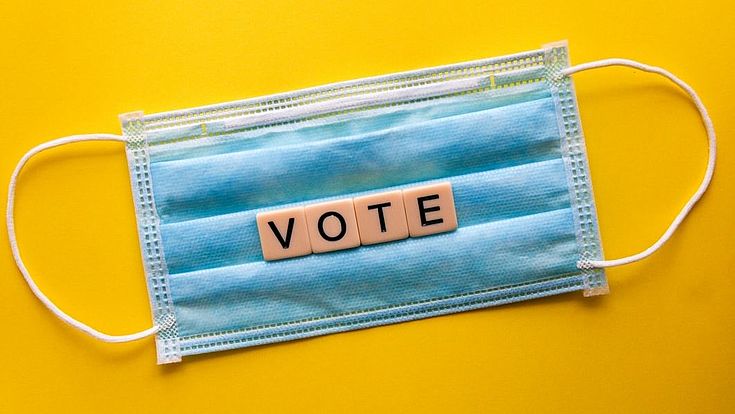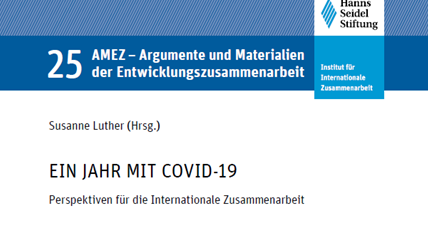Publication
Korean Politics in Times of Covid-19

Picture: United Nations
South Korea as a Role Model
South Korea was one of the first countries with Covid-19 cases outside of China. Because of the close economic relations, the first confirmed case in January 2020 was expectable. One month later the case numbers increased rapidly. Members of a protestant sect, which came back from a Christian mission in China spread the virus and had to give information about all members to the government in order to test them. Therefore, the Korean government conducted about 230.000 test. Meanwhile the Korean strategy towards the pandemic is ‘Testing and Tracking’. Therefore, the identification of all contacts through surveillance cameras, credit card details and data of mobile phones takes place. In Summer2020 South Korea successfully flattened their curve of case numbers and a second wave in November was milder than in Europe. Nevertheless, the fear of the virus is higher than in Europe. In December when there were 600 new cases per day there were new restrictions implemented and the South Korean covid warning system was differentiated.

Reasons for South Korea's Success
On the one hand, the success is based on the geographical location. South Korea can only be reached by boat or plane due to the impermeable border with North Korea. The entry regulations have been tightened considerably since the beginning of the pandemic. Every person entering the country is obliged to quarantine for 14 days and to regularly track their health condition in an app during this period. The adherence to the quarantine is checked via the smartphone data and random checks. Another reason for the successful handling of the pandemic is the attitude of the population towards technology. These are generally received with enthusiasm and optimism, and there are hardly any concerns about data protection. In contrast to China, in South Korea these new technologies serve not only the government but also political counter-movements, which use them, for example, to coordinate mass protests. A third reason for the success is that ‘social distancing’ and the associated measures, such as wearing masks, are easier to implement in East Asian countries, as air pollution has increased the wearing of masks in recent years.

Picture: Glen Carrie
Korean Economy and Domestic Politics during the Pandemic
President Moon's ruling party clearly won the last parliamentary elections on April 15 2020. This was mainly due to the government's crisis management, which was perceived very well by the population. Beyond this issue, however, the Moon government's performance so far has been poor in almost all fields. For example, the economy was already in a serious crisis before the pandemic, unemployment, especially among young people, was high for Korean standards, and North Korea policy had made almost no progress for over a year. Thus, the pandemic has had a positive effect on the ruling party so far. Economically, the country has been hit hard by the pandemic because of its dependence on exports. However, the recession will be milder than in OECD countries, as a lockdown in South Korea has been prevented so far.

Covid-19 Pandemic in North Korea
Seen from the outside, the current situation in North Korea is mainly marked by information gaps. North Korea decided very early to close its border with China, which could have been an entry gate for the virus due to border trade. Shortly afterwards, North Korea also closed its border with Russia, and from 25 January 2020, with few exceptions, no more planes, ships or trains arrived in the country. Since then, the country has been completely isolated. In the weeks that followed, thousands of people who were suspected of being infected had to quarantine. Among them were all foreigners, some of them protested and expressed strong resentment against these measures. In the meantime, most diplomatic representatives have left the country. This fact contributes massively to the lack of information about the current situation in the country. To date, North Korea claims that it has not had a single proven case in the country. However, the country does not have appropriate diagnostic methods and not enough medical equipment. Although it is certain that there has not yet been a mass outbreak of the disease in the country, the country suffers from isolation. It seems that essential staple foods are becoming rare, and the lack of imported fertilizers is probably already having an impact on the agricultural sector.
To read Dr Seliger's full report (only available in German) on South Korea's management of the Covid-19 pandemic, send an email to info(at)hss.de.
